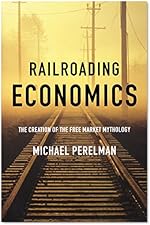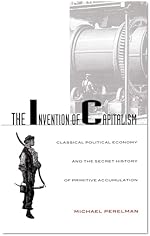Archive for May, 2012|Monthly archive page
College Graduates on the Brink: A Double Waste
In the last week, 3 of my best students told me that they were joining the military. One came for a letter of recommendation and another whom I knew when he was in high school only told me today when I asked about his plans. Another bright young guy from basketball is dropping out to join. Again, financial considerations are dominant. I assume they are the tip of the iceberg among students with whom I am close. They see no decent job prospects in the civilian sector. What is going on when our economy creates such a double waste: not providing decent opportunities and then drawing them into a killing machine.
WTF
Hillary Clinton brags about hacking Al-Qaeda’s computers in Yemen, while the US is imposing severe intrusions on privacy because evil doers might hack the innocent computers of U.S. business.
In the name of peace, US drones are raining death around the world. Now the US is selling these lethal contraptions to Italy, perhaps to help the country impose more austerity or perhaps to aim them at the great financial institutions. Who knows? In any case, we can expect that sooner or later everybody will have these toys with which they can play foreign policy.
Thoughts for Memorial Day: Heroism vs. Moneymaking
We remember how the neoconservatives will solve warfare as a way to out American softness and recover the noble heroism associated with past military victories. Here is a snippet from the post-Civil War period, which adds an interesting twist: the editorial in question makes a distinction between the ethic of warfare and the sordid moneymaking at the time. Today, the presumptive ethical basis of both the military and the moneymaking crowd deserve our highest admiration, even though the moneymakers are engaged in warfare against the same people that the military is supposed to be protecting.
94-5: “The fervor with which Americans practiced the rituals of Memorial Day began to fade in the late 1870s and early 1880s. Graceful popular ceremonies,” declared The New York Tribune in May 1878, no longer fit in a society characterized by “the pioneers of the prairie and the speculators in railway stock.” Bitterness had waned, and as “individual sorrow for the fallen fades away,” said the Tribune, Decoration Day “gradually loses its best significance.” By 1880, the same paper editorialized on how Decoration Day had “become coarser and more blurred” in its meaning, and how it had fallen into the “slough of politics.” In the Gilded Age, the Tribune claimed that the truly “loyal” would continue to honor the Civil War dead, but also make every “effort to put out of sight the causes of the war, the hate and bitterness which we thought immortal.” At stake now was the next generation and the social and moral order. Civil War memorialization should not be used for political purposes among the children born since the war, claimed the Tribune, but the sacrifice of soldiers should very much be used as lessons in morality and patriotism. “The days they [postwar children) have been born in are not heroic,” declared the Tribune, “they are full of fraud, corruption, bargain, and sale. Men are not pushing to the battlefield to die for an idea; they are pushing into place.” As an antidote to America’s “sordid expertness in money-getting,” the editors spoke for a large cross-section of the culture that now looked to the Civil War dead, as well as to living veterans, as the alternative to their unheroic age, as sources of honest passion, higher morality, something “noble and true … kept for our children.”
Preannouncement of Paperback Edition of my Book
After letting my book languish for almost five years Palgrave let The Confiscation of American Prosperity, they are about to release a paperback edition. In addition, they are featuring me as author of the month and reprinting my new introduction, which I explain why the book was constructed as a crime story.
My picture and the introduction are at the bottom.
Austerity Economics: Tied Up in Knots?
A core element of neoclassical economics was to emphasize transactions rather than work, workers, or working conditions. The idea was that the justification of the system was the utility enjoyed by consumers. All considerations of work, workers or working conditions were to be swept aside. Production is relevant only insofar as serves to satisfy consumer needs.
Macroeconomics was expected to depend upon this neoclassical micro foundation. Nonetheless, macroeconomics centered on demand is rejected by all good austerians. Instead, the current fad is to emphasize supply-side economics. Trading the social safety net encourages hard work. Tax cuts ensure more employment.
Over and above the self-destructive consequences of austerity, the recent wave of austerian nonsense has the unintended consequence of contradicting the intellectual foundation of neoliberal economics.
 Comments (1)
Comments (1)
 25 – The Confiscation of American Prosperity: From Right-Wing Extremism and Economic Ideology to the Next Great Depression
25 – The Confiscation of American Prosperity: From Right-Wing Extremism and Economic Ideology to the Next Great Depression 30 – Manufacturing Discontent: The Trap of Individualism in Corporate Society
30 – Manufacturing Discontent: The Trap of Individualism in Corporate Society Class Warfare in the Information Age
Class Warfare in the Information Age Railroading Economics: The Creation of the Free Market Mythology
Railroading Economics: The Creation of the Free Market Mythology Steal This Idea: Intellectual Property Rights and the Corporate Confiscation of Creativity
Steal This Idea: Intellectual Property Rights and the Corporate Confiscation of Creativity The Invention of Capitalism: Classical Political Economy and the Secret History of Primitive Accumulation
The Invention of Capitalism: Classical Political Economy and the Secret History of Primitive Accumulation The Perverse Economy: The Impact of Markets on People and the Environment
The Perverse Economy: The Impact of Markets on People and the Environment